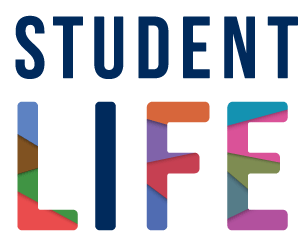The Mentorship & Peer Programs resource library holds links to a variety of resources and documents related to developing a mentoring program, defining mentoring roles, peer mentor support & training, and access & inclusion in mentorship.
Developing mentorship programs
These resources are designed for current peer mentors or for staff, faculty or students who are running or developing mentoring programs.
Start a Mentorship Program
- Guide to Starting a Mentorship Program (PDF) is a step-by-step guide to support you in the process of constructing and implementing a new mentorship program or enhancing a program that is already in place. Although the intended audience of this resource is coordinators of peer mentorship programs at U of T, much of the resource is transferable to alumni or faculty programs as well as other post-secondary institutions.
- Mentoring Program Template (PDF) outlines a general list of items to explore when developing your own mentoring program.
- Designing Virtual Mentoring Programs (PDF) outlines the three key factors to review/consider when designing virtual mentoring programs.
The Four Phases of Mentorship
Mentorship is a learning relationship between two or more people, and it typically follows four phases: preparing, negotiating, enabling growth and coming to closure.
Preparing is the discovery stage of the mentoring relationship:
- Discover your own personal motivation and readiness to be a mentor.
- Get to know your mentee and build rapport.
- Create a context for the learning partnership you and your mentee will build together.
Resource list:
- Mentorship Foundations (PDF) acts as a brief introduction to the foundations of mentorship including mentorship roles and best practices.
- Mentorship Competency Framework (PDF) introduces the four core competencies/skills for effective peer mentorship.
- Characteristics of Peer Mentors (PDF) examines the roles of student peer mentors in higher education as outlined in multiple literature reviews.
- Mentoring Skills Inventory (PDF) is a worksheet that encourages mentors to reflect on their key mentoring skills and develop a plan for areas that need improvement.
- Thinking About Your Personal Journey (PDF) is a worksheet for mentors that enables them to participate in self-reflection to develop their own unique mentoring style based on life experiences.
- Initial Conversations with Mentees (PDF) provides an outline for mentors to get to know their mentee(s) by creating points of connection.
- Virtual Mentoring (PDF) outlines a general list of items to explore when thinking about virtual mentoring benefits and challenges.
- Our Favourite Applications for Mentoring Online (PDF) is a resource developed by the Mentorship & Peer Programs team to showcase our preferred tools for mentoring online.
Negotiating is the business stage of the mentoring relationship:
- Support your mentee by helping them create learning goals.
- Create a learning agreement with your mentee, to cover shared responsibilities and ground rules.
- Establish boundaries with your mentee.
Resource list:
- Goal Setting (PDF) is a worksheet that outlines SMART goal setting and the Four M Method of Achieving Goals to assist mentors with helping mentees set goals and develop strategies to achieve them.
- Developing a Mentoring Partnership Agreement (PDF) is an outline for mentors and mentees to work together to create a contract or learning agreement for their mentoring relationship.
- Template: Mentoring Agreement (PDF) is a second type of mentoring agreement template that encourages mentors and mentees to discuss expectations and goals when negotiating a partnership.
Enabling is the work stage of the mentoring relationship – this is where mentors will have the most contact with their mentees:
- Support your mentee’s learning and challenge their assumptions through one-on-one mentoring or mentor-led group work.
- Provide useful feedback to them to help them achieve their desired learning goals.
Resource list:
- Learning About Active Listening (PDF) is a resource that encourages mentors to actively listen and to consider the difference between listening and hearing.
- Four Types of Listening (PDF) outlines four types of listening: downloading, factual, empathic, generative.
- Having 1-on-1 Conversations with Mentees (PDF) is a useful tool for structuring one on one mentoring conversations.
- Emotional Intelligence, Intuition and Mentoring Relationships (PDF) explores emotional intelligence (EQ) and how it relates to mentoring relationships.
- Open-Ended Questions & Listening Exercise (PDF) is a personal reflection listening exercise that encourages the use of open-ended questions in a mentoring relationship.
- Facilitating Growth and Development (PDF) identifies opportunities for mutual learning, growth and community building.
- Facilitating Impactful Reflection (PDF) explores the DEAL model of reflection and how mentors can encourage mentees to reflect on their learning.
- Group Facilitation (EFFECT formula) (PDF) outlines the EFFECT formula as a tool for facilitating group learning.
- Interactive Strategies for Engaging Mentees (PDF) provides mentors with a list of interactive strategies for increasing engagement of mentees.
- Re-engaging Mentees (PDF) is a guide for revitalizing the partnership after a period of absence. This activity can be used as a starting point for re-connecting mentors and mentees.
- Identifying & Referring Students in Difficulty (PDF) is a guide for peer mentors when it comes to identifying signs of distress and referring students to appropriate support services.
Coming to closure is the reflection stage of the mentoring relationship:
- Assess the value of your mentoring partnership.
- Identify areas of growth and learning.
- Celebrate learning outcomes achieved.
Resource list:
- Impactful Reflection and Preparing for Closure (PDF) encourages impactful reflection of learning goals outlined at the beginning of the mentoring relationship.
- Coming to Closure with Mentees (PDF) is a collection of exercises that are intended to guide a thoughtful reflection between mentor and mentee.
- Self-Reflection: Turning Closure into Learning (PDF) is a worksheet that encourages mentors to reflect on what they have learned throughout their mentoring role. This exercise emphasizes the fact that mentoring relationships are reciprocal and both mentors and mentees learn throughout their journey.
Defining mentorship roles
These resources are designed for current peer mentors, advisors or mentees who are either interested in or currently engaged in a mentoring relationship.
Developing a Mentoring Partnership Agreement (PDF) has strategies to support mentors and mentees in developing a mentoring partnership agreement focused on setting boundaries, defining expectations, and evaluating goals.
How to Be A Great Mentor (PDF) provides tools for mentors to work on enhancing their mentoring relationships.
The Mentor Handbook (PDF) breaks down the mentor role based on responsibilities, competencies, expectations, best practices and goal setting.
The Mentoring Role (PDF) is an asynchronous training that introduces participants to Mentorship and Peer Programs at the University of Toronto and the scope of a peer mentoring relationship. This training is also part of the Mentorship Foundations training offered at the university which prepares students to serve as a mentor or advisor in a peer support role.
Time Management & Organization (PDF) is a resource designed by The Centre for Learning Strategy Support that focuses on providing students with tools to better manage time and improve organizational skills.
Strategies for Graduate Mentoring & Supervision at a Distance (PDF) is a resource developed by the School of Graduate Studies and highlights a list of strategies that are helpful when mentoring graduate students.
The Mentee Handbook (PDF), designed by the Mentorship & Peer Programs team, focuses on encouraging mentees to fully benefit from the mentorship experience. The materials in this handbook are from Mentorship’s Maximizing Mentorship training program, a program specifically for mentees at the University of Toronto.
Preparing for a Mentorship Relationship (PDF) provides mentees with the necessary tools needed to prepare for a mentoring relationship including defining mentorship roles, expectations, responsibilities and setting goals.
How to Be A Great Mentee (PDF) provides tools for mentees to work on enhancing their mentoring relationships.
Mentoring Agreement Template (PDF) outlines a list of topics for mentees and mentors to discuss when creating a partnership agreement.
SMART Goals Worksheet (PDF) is a worksheet developed by the Centre for Learning Strategy Support to assist mentees with working through their goals to make them more specific, measurable, achievable, rewarded/relevant and timely.
Peer mentor support & training
These resources are designed for current peer mentors or advisors who are interested in advancing their mentorship skills through additional trainings.
- Knowing Your Resources (PDF) is an asynchronous training that supports mentors in finding appropriate resources/referrals to meet the needs of their mentees. This training is part of the Mentorship Foundations Training offered at the University which prepares students to serve as a mentor or advisor in a peer support role.
- Building Rapport Online (PDF) is an asynchronous training that outlines the importance of building rapport, which requires trust, in a mentoring relationship. This training is part of the Mentorship Foundations training offered at the university which prepares students to serve as a mentor or advisor in a peer support role. As a part of this training, please watch the Building Rapport Online video. The PDF showcases the details of each aspect of the training.
- Setting Intentions in Mentoring Relationships (PDF) is an asynchronous training that outlines the importance of setting intentions, either in a partnership or in a group setting. This training is part of the Mentorship Foundations Training offered at the University which prepares students to serve as a mentor or advisor in a peer support role. As a part of this training, please watch the Boundary Awareness in Your Peer Support Relationship video. The PDF showcases the details of each aspect of the training.
- Icebreaker Questions (PDF) offers a list of icebreakers for mentors when facilitating groups.
- Ending a Mentoring Relationship (PDF) shares key information about the process of ending a mentoring relationship before the agreed upon end date. This resources speaks to establishing a safe exit plan (for both mentor and mentee) at the beginning of the relationship and how to do this safely and respectfully.
- Digital Connections Toolkit is a resource developed by the University of Toronto’s Innovation Hub to help students facilitate connections online. This resource offers different online engagement tools based on interaction type, group size and platform.
Access & inclusion in mentorship
These resources are designed to support program coordinators, peer mentors or advisors and mentees who are interested in learning about the importance of access and inclusion in mentorship.
- Being Mindful Through the Medicine Wheel (PDF) is a worksheet developed by the Centre for Learning Strategy Support and First Nations House/Indigenous Student Services to assist students with achieving balance. This worksheet outlines a template for students to follow along to map their own personal wellness circles focusing on physical, spiritual, emotional and mental health. This worksheet adopts the medicine wheel understood by many Anishinaabek people as a teaching tool to promote the holistic and interconnected nature of health and to encourage balance through wellness.





